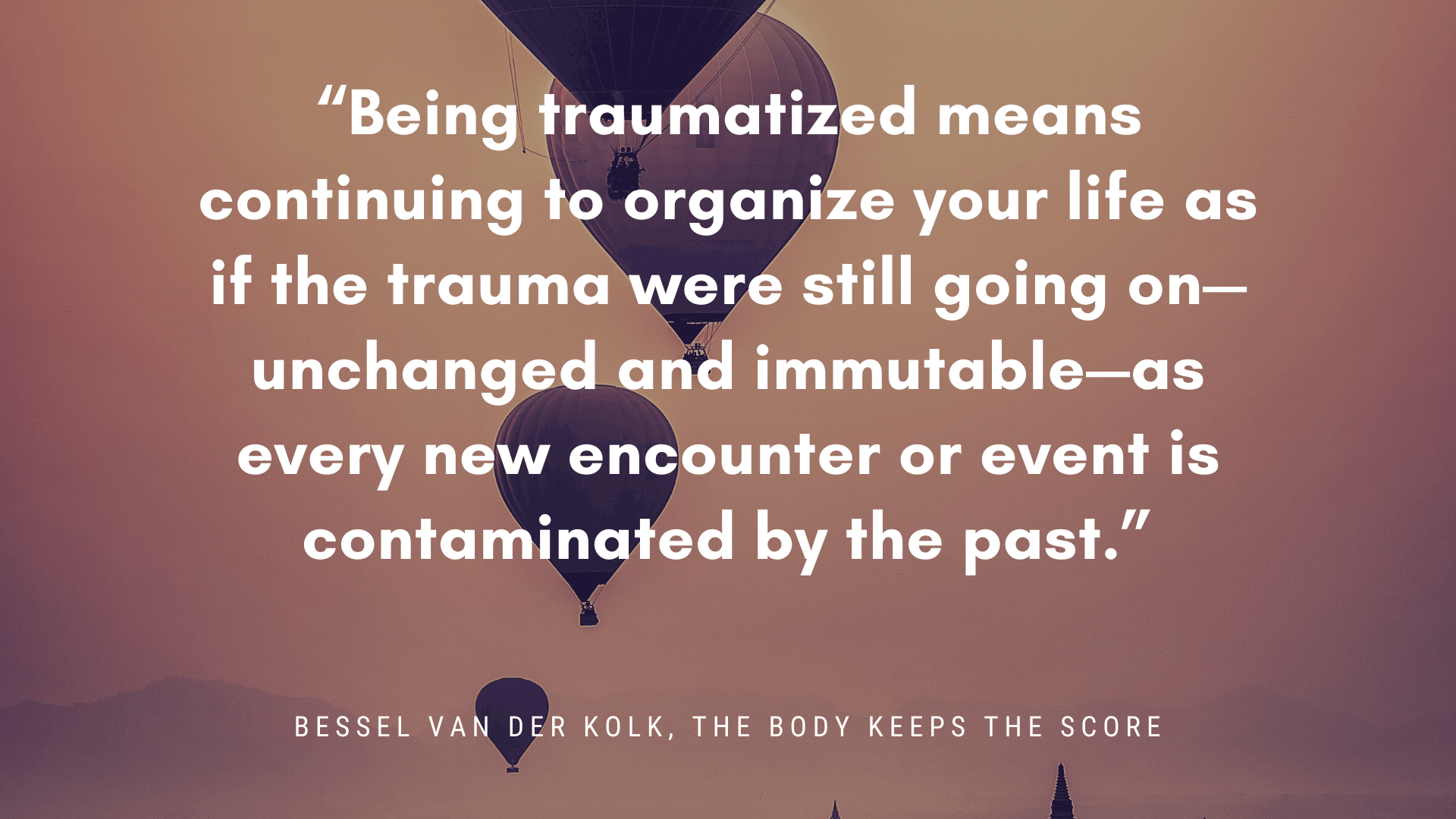“Trauma is in the nervous system, not in the event.” -Peter Levine
Despite popular belief, when we talk about trauma, we are referring to what happens within our bodies during and after the event–not the particular event itself. These events can happen in many different settings: school, home, work, community, etc. Regardless of where they occur, the events are typically characterized by the inability to take the actions necessary to protect yourself, and we feel that nothing we do can stop what’s happening to us.
Bessel van der Kolk, M.D., defines trauma as “not the story of something that happened back then, but the current imprint of that pain, horror, and fear living inside [the individual].” These events leave us stuck in a state of helplessness and terror, and results in a change in how we perceive danger.
Our nervous systems can change in response to these events, and we may experience difficulty regulating our emotions, being in the present moment, and experience fulfilling relationships.

What is trauma-informed counseling?
Trauma-Informed Counseling means recognizing that people often have many different types of challenging experiences in their lives. In general, trauma is the experience of extreme stress that overwhelms a person’s ability to cope. People who have been traumatized need support and understanding from those around them. Often, survivors can be re-traumatized by well-meaning caregivers and community service providers who haven’t been properly trained.
Trauma is usually shrouded in secrecy and denial; and it is often ignored. However, we now know that it is a near universal experience of individuals with behavioral health problems. According to the U.S. Department of Health and Human Services’ Office on Women’s Health, 85% to 95% of women in the public mental health system report a history of trauma. An individual’s experience of these events impacts their physical, mental, behavioral, social, and spiritual lives.
Why does trauma-informed counseling matter?
Trauma-Informed Counseling is more that just a theory, it is an overall approach to counseling that includes everything from being mindful about the way the physical environment of the therapy room may affect clients, to understanding that even the most destructive behavior patterns are simply a way of adapting to the experience, and a method of surviving and managing current discomfort.
Trauma-informed counselors recognize the signs and symptoms of these adaptations, and believe that recovering from the event is just as important as dealing with the “issue” that brought the client to therapy in the first place (ie..substance use, depression, anxiety, eating disorders, etc.). Trauma-informed counselors focus on and build strengths: life will inevitably bring new challenges, and reliance on these strengths is key to navigating those challenges and making it through to the other side. Furthermore, trauma-informed counselors make their own self-care a priority so they don’t burn out. Finally, and most importantly, trauma-informed counselors wholeheartedly believe that people with lived experiences of traumatic events can and do recover and heal.
In my next post, I’ll share about the different categories of traumatic experiences.
About the Author

Kara Ashley-Gilmore believes in the use of our innate creativity for our wellness and healing. She is a Licensed Clinical Mental Health Counselor, Registered Art Therapist, Somatic Experiencing Practitioner-in-Training, and a mixed-media artist at Mountain Creative Arts Counseling, in Hendersonville, NC. She provides individual and group psychotherapy and with individuals who feel crushed by the weight of their worries, dread their next panic attack, and live with overactive inner critics. Learn more about her work at www.mountaincreativearts.com.
